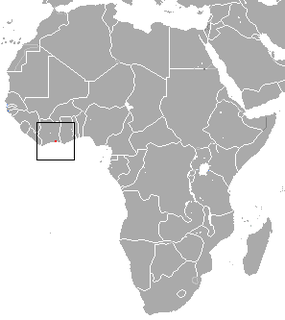
The International Union for Conservation of Nature (IUCN) Red List of Threatened Species, founded in 1964, is the world's most comprehensive inventory of the global conservation status of biological species. It uses a set of precise criteria to evaluate the extinction risk of thousands of species and subspecies. These criteria are relevant to all species and all regions of the world. With its strong scientific base, the IUCN Red List is recognized as the most authoritative guide to the status of biological diversity. A series of Regional Red Lists are produced by countries or organizations, which assess the risk of extinction to species within a political management unit.

The piebald shrew is a shrew found in the Turan Lowland east of the Caspian Sea in Iran, Turkmenistan and Uzbekistan. It grows to 2–23⁄4 inches in length, and usually hunts for insects and lizards at night. It is the only extant member of the genus Diplomesodon. In 2011, A. Cheke described a new and possibly extinct species based on a 19th-century manuscript: Diplomesodon sonnerati. It was described again in 2018 to meet certain validity requirements of the ICZN code.

Wimmer's shrew is a white-toothed shrew found only in Côte d'Ivoire. It is listed as a critically endangered species due to habitat loss and a restricted range.
Nesoryzomys swarthi, also known as the Santiago nesoryzomys or Santiago Galápagos mouse, is a species of rodent in the genus Nesoryzomys of family Cricetidae. It is found only on Santiago in the Galápagos Islands. Its natural habitat is subtropical or tropical dry shrubland.

Boromys is an extinct genus of Cuban rodents in the family Echimyidae. It contains the following species:

Torre's cave rat was a species of rodent in the family Echimyidae. It was endemic to Cuba. Its natural habitat was subtropical or tropical moist lowland forests.

Shaochilong is an extinct genus of carcharodontosaurid dinosaur from the mid-Cretaceous Ulansuhai Formation of China. The type species, S. maortuensis, was originally named Chilantaisaurus maortuensis, but was re-described and reclassified in 2009.






